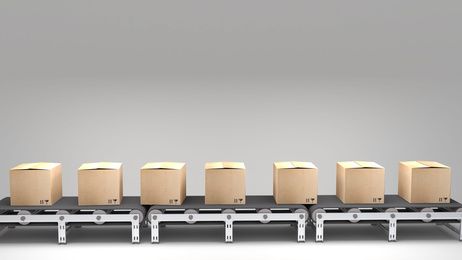I am sort of conference junkie. I'll skip the 'why' part, because I've described it already once or twice - instead I'll get back to what I like MOST (relax, just one thing) about conferences & why I attend them instead of just watching the videos published afterwards: to meet (in person) the practitioners who've succeeded greatly, listen to their stories & ask them inconvenient questions :^D
Two important comments before you mis(/over)interpret what I've just written above:
-
Every company is different & you can't just get practices / tools from company A, use them in the same way in company B & expect the same effect. It just doesn't work that way -> I realize that.
-
I'm most interested in lean / agile development + different aspects of large-scale software architecture (regardless of the tech platform behind). So I guess it shouldn't be surprising that I'm very eager to hear from companies like: Google, Amazon, Netflix, Twitter, Facebook, Spotify, Etsy, LinkedIn, etc.
Back to the point: yes, it's very nice to hear about how one or the other company did this or that & how tremendous it is, ... except that sometimes it doesn't feel like it really is. Why? Because I'm one of their customers & from my perspective reality ain't that cool as it should be (based on the stories I keep hearing).
There's one particular case I'd like to speak about:
Spotify
I'm their paid (full option) customer for over 2 years now (since Feb 2013) & I'm really happy about:
- the breadth of the offer (the library of music available)
- the quality of streaming
- the stability & availability of service
These were always great, since the first day of my subscription, absolutely no reason to complain. But there are also several aspects of Spotify that ... well ... kinda lack polish. Just a few examples:
- external party APIs were too flawed to make anyone create anything sensible, so they were removed
- notifications never really worked fine -> I've marked several artists as my favourite ones, but I never get notifications about their new albums (but OTOH I get notifications about some oldies mysteriously re-appearing)
- there are several features that are obviously missing, for instance:
- the calendar of future premieres
- gigs of browsed / favorite companies
- community-based classification of genres
And the worst thing about them (and the service/apps in general) is ... that ...
There's no improvement visible
I keep hearing how awesome Spotify (as a company) is.
How agile.
How advanced is their engineering culture.
How many times per day they can deploy.
How big their Hadoop cluster is.
How microservicish their architecture is.
Examples:
- http://www.slideshare.net/andrefaria/big-ideias-about-spotify-culture
- http://www.slideshare.net/JoakimSunden/agile-at-spotify
- http://www.slideshare.net/erikbern/collaborative-filtering-at-spotify-16182818
- http://www.slideshare.net/AdamKawa/big-data-at-spotify
- http://www.slideshare.net/MrChrisJohnson/algorithmic-music-recommendations-at-spotify
- http://www.slideshare.net/protocol7/spotify-architecture-pressing-play
- http://www.slideshare.net/alisarrafi3/how-spotify-makes-product-45173471
- http://www.slideshare.net/nbarkas/spotify-horizontal-scalability-for-great-success
- http://www.slideshare.net/dj4b1n/data-at-spotify
And frankly - I believe this is all the honest truth. But why, as the end-user of their services, I can't see this making an impact on what I get? Of course they may have a valid response, for instance:
Because we focus our efforts on ...
- ... scaling the services (user base is growing constantly)
- ... back-end tooling (for instance: library content management, publisher UI, etc.)
- ... analytics behind functions like 'Discover'
- ... masses of customers who are most mainstream (susceptible to trends, eager to share their interest with the largest chunk of population, etc.)
... but should I care? Why?
As an end-user I don't see any improvements: I still get dumb-ass recommendations (& no-one else uses my account, just me), I never get sensible notifications (but I get some ridiculous ones), I can't see any visible UI/UX improvments in client apps (I use Windows & Android ones). Why doesn't operational excellence & agile awesomeness have any visible effects in end-user value within 2 years time?
I'm just wondering.
Don't misunderstand me. This is not supposed to be a hate / flame post. I respect Spotify. I'm happy they come from Europe (initially from Sweden, I think). I like to hear their war-stories during the conferences. I'll keep paying for their service, which is really fine (as it already was, when I've started using it).
But I'm still wondering.
Img: All rights reserved - Spotify AB trademark.








